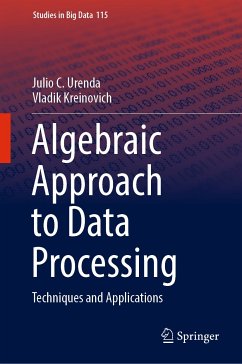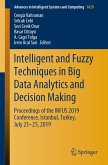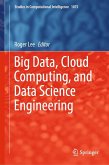The book explains this approach and expands it to new application areas ranging from engineering, medicine, education to social sciences. In many cases, this approach leads to optimal techniques and optimal solutions.
That the same data processing techniques help us better analyze wooden structures, lung dysfunctions, and deep learning algorithms is a good indication that these techniques can be used in many other applications as well.
The book is recommended to researchers and practitioners who need to select a data processing technique-or who want to design a new technique when the existing techniques do not work. It is also recommended to students who want to learn the state-of-the-art data processing.
Dieser Download kann aus rechtlichen Gründen nur mit Rechnungsadresse in A, B, BG, CY, CZ, D, DK, EW, E, FIN, F, GR, HR, H, IRL, I, LT, L, LR, M, NL, PL, P, R, S, SLO, SK ausgeliefert werden.









